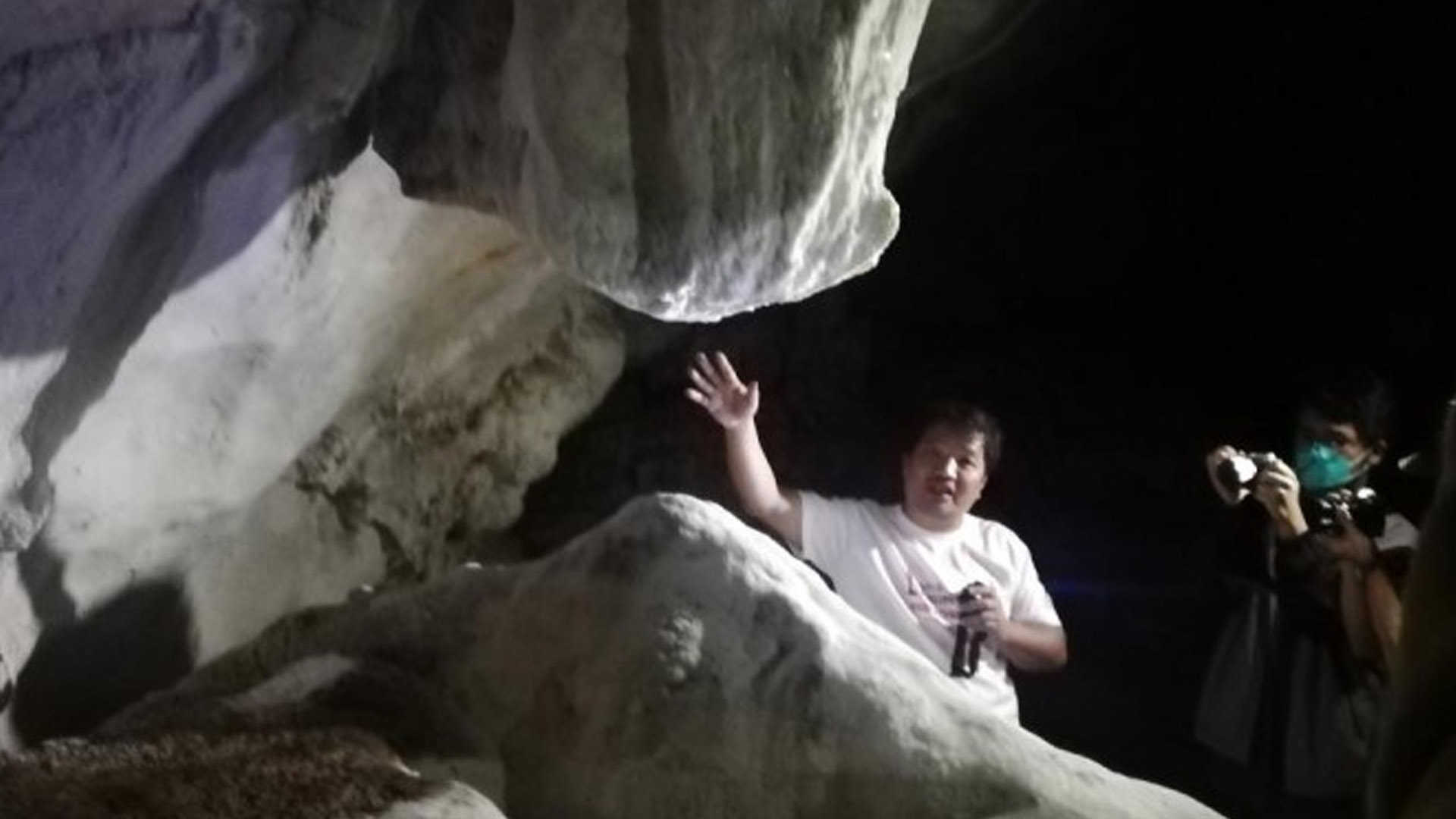Tourists who have been to this town have more reasons to return with the opening of new attractions including the Balangagan burial cave that features crystal-white rock formations.
In an interview during a media tour on Sunday, Robert Pangod, former tourism officer of this town who is now a volunteer tour guide, urged tourists to visit Balangagan and not just the Sumaguing and Lumiang caves to have a complete experience of Sagada.
Pangod said because of the presence of coffins, the cave is considered “sacred” as well as historic, having served as an evacuation site for the locals during World War II, which kept them out of the eyes of the Japanese invaders in the Cordillera region.
“Ang Balangagan parang circular itsura niya, bale may tatlong level, pinaka mataas ang burial chamber, dito mo makikita ang mga rock formation na puros mga white na limestone. Dito din ang mga chandelier type (Balangagan cave is circular in appearance with three levels the topmost of which is the burial chamber where you can see white limestone rock formations. Chandelier type of rock formations can also be found here),” he said.
Pangod said the second level of the cave has rock formations in gray and black.
Balangagan cave, which was opened to locals in 2014 and formally opened for tourism purposes in the last quarter of 2022, has a distinct character that also provides a cultural attachment for tourists.
Upon entering, visible are several traditional coffins laid on the side, the big burial jar on top of one of the ledges, and the small burial jar for children on another ledge.
Going in, visitors can find chandelier types of stalactites on the ceiling and walls. A crystal-white stalactite almost meeting a stalagmite is also among the first views. On the flooring are several rock formations also in crystal-white colors.
To see the three levels of the cave, at least 2.5 to three hours have to be spared for exploring and listening to the stories and briefings from the tour guide.
“Several other rock formations are inside which cannot be seen in Sumaguing,” Pangod said. “The best place to visit for a cultural attachment is Balangagan where you can see not just the coffins of the ancestors but the olden practice of burying in jars.”
Preservation efforts
Pangod said there used to be many jars when the cave was discovered and opened to the locals in 2014 but without anybody guarding it, some were destroyed, stolen or simply disintegrated over time.
“Makikita kanina, napaka puti yung mga rock formation pero may mga talagang hindi rin alam ng mga turista pati ng ilang locals, bata na pumapasok na inaapak-apakan na lang ang rock formation kaya nagkakaroon ng mantsa (You saw awhile ago how white the rock formations are, but there are some tourists and locals who do not know, children enter and step on them, the reason there are stains),” he said.
He said local leaders of Sagada are appealing to tourists, tour guides, and residents to be responsible and not step on the rock formations on the floor or even touch them. Also, the “what you bring in, bring it out with you” rule should be observed, he added.
Pangod said a maximum of 100 persons including the 20 guides are allowed at a time inside Balangagan to prevent much disturbance in the cave.
He noted that Balangagan and the other sites in the southern zone were opened with the conformity of the community, and tour packages have been created with the people’s participation pertaining to social preparations and safety features.
More tourist sites, more accommodations
Mayor Felicito Dula, in a separate interview, said tourism is Sagada’s primary source of income and they are happy that the tourism industry of their town is well on its way to “normal” after the pandemic.
“So far the restaurants, souvenir shops, shuttle service, and accommodations can feel the difference compared to the pandemic and we are thankful. We opened Sagada without the required entry protocols because we know that our stakeholders have prepared for the arrival of the tourists and we want to be in the itinerary of travelers and tourists,” Dula said.
From the previous 3,500-bed capacity, he said the town is now capable of accommodating up to 5,000 guests with the opening of additional facilities which the residents prepared amid the health crisis.
The average accommodation rates are from PHP350 to PHP500 per head per night, he noted.
“Discover Sagada, Discover yourself, come to Sagada, and experience the new attractions prepared by our people for everyone to enjoy,” Dula said. (PNA)





















